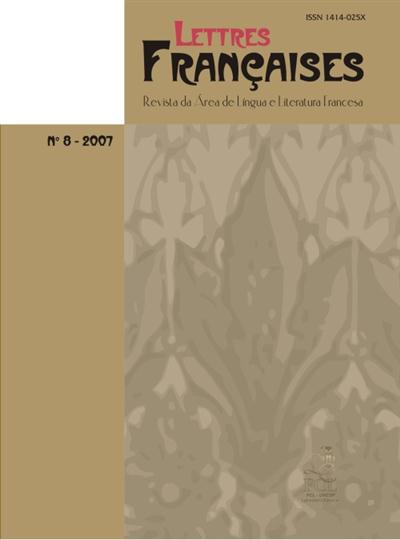Baudelarian flowerings
Keywords:
Charles Baudelaire, Les fleurs du mal, ModernidadeAbstract
The French writer Charles Baudelaire, author of the Les Fleurs du Mal [As fl ores do mal (1857)] is the first greatest modern poet, whose critical and poetic work postulates not only the contradictory concept of modernity but it also makes it. Such concept, largely applied to literary, sociological, political, economic, philosophical, and cultural studies, is related to the thinking of the problematic mode of constitution of the modern world that has been extremely marked since the second half of the 18th century by the impact caused by the capitalist, technical-industrial modernization due to the raising of the bourgeois class, by the predominance of the urban life, the dissolution of the traditional values, the Illuminist ideas, and especially by the advent of the revolutionary romanticism. It is in that period, exacerbated, as it is known, in the 19th century, that Baudelaire’s poetry and thinking should be located. His “Salon de 1846” and “The Painter of Modern Life” defi ne half of the art in modernity as “the transitory, the ephemeral, the contingent, while the other half is seen as the eternal and the immutable”. Coherent with this principle, the work of the French poet is nourished by this essential dichotomy. Considering what was said above, the objective of this paper is to think about the fl owerings of the baudelarian poetry: those which blossomed in the work of 1857, those which are the propulsion and the seeds of the important artistic movements located between the 19th and 20th centuries; those that, surpassing the vanguard, are still blossoming in our time, which is more and more liquefied. Keywords: Charles Baudelaire. Les Fleurs du Mal. Modernity.Downloads
Published
28/10/2009
Issue
Section
Artigos
License
Os manuscritos aceitos e publicados são de propriedade da Revista Lettres Françaises. É vedada a submissão integral ou parcial do manuscrito a qualquer outro periódico. A responsabilidade do conteúdo dos artigos é exclusiva dos autores. É vedada a tradução para outro idioma sem a autorização escrita do Editor ouvida a Comissão Editorial.

